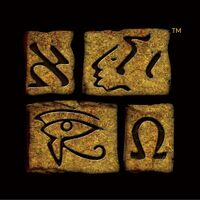
FAIR is a non-profit organization dedicated to providing well-documented answers to criticisms of the doctrine, practice, and history of The Church of Jesus Christ of Latter-day Saints.

English mathematician and philosopher W.K. Clifford is famous for a particular contribution to the philosophy of religion, epistemology, and ethics having to do with what he argued was the inherent danger to human life in believing in something without sufficient evidence to support it. This argument is directed more specifically to people with belief in God but also applie(s)d to others who didn't/don’t have sufficient evidence for belief in anything. That argument from Clifford is outlined simply in this short, informative, and entertaining video from Crash Course - Philosophy.
Some ask what the Latter-day Saint response to the question of epistemic responsibility might be. This article will outline a few ways to approach such a response. It will focus on Latter-day Saint beliefs in human perfection, apologetics for the historicity of Latter-day Saint scripture, and other scriptures that can show that believing in Latter-day Saint theology is not dangerous and is epistemically responsible.
The first major objection that one could raise to the argument is "[w]hat threshold of evidence would be necessary to cross in order to be 'sufficient' for belief?" Clifford never really tells us. Different propositions would necessarily require different thresholds of evidence in order to rationally hold a belief. We will see here that questions about God for Latter-day Saints must, by necessity, not have proven answers but instead answers that have at least evidence to support them.
It should be noted that for Latter-day Saints, proving God’s existence and/or the truthfulness of the Restored Church of Jesus Christ isn’t exactly in everyone’s best interest. Latter-day Saint philosopher and theologian Blake T. Ostler outlined why God may need to remain at a cognitive distance from us and why we might not want to prove his existence:
To have a genuine relationship, it was necessary for [the pre-existent spirits of all people] to leave God's presence and enter into a situation where His existence, glory, and power were not obvious to make room for both moral and religious faith--a situation where persons could freely enter into a genuine relationship without being coerced to do so by the obviousness of His overwhelming power and glory. Thus, God has set us at a cognitive distance from Him out of respect for our freedom. Because such distance is necessary to permit faith, God's existence must be ambiguous. The world must be capable of appearing as if there were no God precisely to make room for us to come to a genuine relationship with him.[1]
Consequently, Latter-day Saints focus on providing evidence for their belief instead of proof. That may not be enough to resolve this criticism; but it gives us a starting point from which we can proceed and elucidate the rest of the response.
Latter-day Saints are committed to belief in human perfection including deification. This life, for Latter-day Saints, is the proving ground where we will show how well we can keep God’s commandments and thus prove ourselves worthy to return to his presence and receive all that he has.[2] Thus, for Latter-day Saints, humans are ends in and of themselves. Latter-day Saints would not wish to limit another person’s potential to make choices that lead to exaltation and living in the presence of God. Any injury or murder of another person is thus virtually unconscionable to them. Latter-day Saints are committed to extoling charity as the highest form of virtue that one can aspire to.[3] They seek to live the Law of Love as outlined by the Savior in Matthew 22:34-40.[4]
Latter-day Saints believe that part of discipleship of Jesus Christ is to give a reason for the hope that is within us,[5] call upon our enemies in both private and public to confound them,[6] sustain and defend the Church which is considered kingdom of God on the earth, and seeking knowledge and wisdom by study and faith in order to build up others’ convictions of the truthfulness of the Gospel of Jesus Christ.[7]
For many years, scholars and apologists have been exploring and documenting evidences for belief in the scriptures as well as answering criticism of the doctrine, history, and practice of the Church so as to make sure that no one’s belief is impeded in the Restored Gospel of Jesus Christ in any way. Readers are encouraged to get familiar with this scholarship.[8]
This scholarship convincingly refutes any notion that Latter-day Saints have merely blind faith in the Church.

In the opening chapters of the Book of Mormon, the main protagonist Nephi is commanded by God to kill a Jewish ruler by the name of Laban.[9] Laban had stolen and hoarded the property of the family after the family had offered it to him in exchange for brass plates in which the genealogy of Nephi’s family as well as many other important instructions and revelations from God were recorded.
Some critics might ask “If God can command Nephi to kill someone, why can’t he do the same today?” Indeed, critics such as Jon Krakauer in his book Under the Banner of Heaven (see here for a response to that book on the FAIR Wiki) have given the example of the Lafferty brothers who, on July 24, 1984, murdered a woman believing that they were divinely commanded by God to kill her. Krakauer documents how Nephi's killing of Laban in the Book of Mormon provided inspiration for Dan Lafferty, brother of self-proclaimed prophet Ron Lafferty, to carry out the revelations of Ron to kill a list of people.[10]
A few things should be mentioned:
As part of a revelation given to the Prophet Joseph Smith recorded in Doctrine & Covenants, the Latter-day Saint view of how one should conduct war and battle is given.
It is easy to see that Latter-day Saints do not want to become part of violent, senseless killing but be like Christ in turning the other cheek as much as possible and seeking to establish peace. Latter-day Saints assume that all are the same. Only if others decide to take violence to the Saints could such a command by God to go to war ever be given.[19]
The Persuasion Problem in the philosophy of morality arises when we ask the question "[w]hat will motivate people to be good?". Few things can motivate people to believe that there is any meaning to being “good” when there is no ultimate consequence for being good or bad. Believing in God is most often viewed by philosophers as the only way to solve such a problem since he/she/they are the only one(s) that provide a stable metaethical worldview that might be able to provide such a consequence to people’s actions.
Without God’s existence, who can really say what is “irresponsible” and “immoral”? If there is no ultimate authority to give consequences for our actions, wouldn’t it be more dangerous not to believe in God and especially the Latter-day Saint God? Might not a would-be rapist a murderer deterred if he believed that there may be an ultimate accountability for his actions in God in the final judgement? Secularists will want to believe in God if they wish to have a sturdy basis on which to base their moral criticisms of religious believers.
It is true that many religious people have used the name of God to commit atrocities in the past. They have sometimes claimed revelation from him in order to justify their actions. But religion and especially believing in God can provide accountability for those people as well.
The Western prophetic religions such as Zoroastrianism, Judaism, Islam, and Christianity all believe in a final judgement.[20] Latter-day Saints also believe in a final judgement. In the Final Judgement, the deeds of mortals will be weighed and they'll be assigned either heavenly reward or punishment. That idea acts as an insurance of accountability on believers to not fabricate revelation to commit atrocities. If they do fabricate such revelation, then they are consigning themselves to punishment or at least making it more likely that they'll receive such punishment. Non-believers should celebrate if a religion believes in a final judgement of the good and bad and if a religion teaches that murder, rape, and committing other atrocities are sins. Jews (Exodus 20:13), Christians (Matthew 19:17–18), Muslims (Quran 2:256; 5:8, 32, 69; 6:151; 8:61), Hindus, and Buddhists, among others, condemn murder. Other atrocities are also prohibited.
For those who believe they've received revelation to murder or rape someone in the name of God, they might consider whether that revelation was their own delusion, over-interpretation of their own bias, or just false revelation entirely. Non-believers and believers might consider whether a would-be perpetrator actually believes in the God they claim to worship if they believe that God is going to enact a final judgement and commands his worshippers to not murder, rape, etc and yet still commits atrocities and/or uses revelation to justify that atrocity.
The fear of the Final Judgement and Eschaton (in Christianity), combined with the moral teaching of scripture, is perhaps the best way to secure the ongoing comfort, happiness, and survival of human beings. It is perhaps superior to having no religion or having another form of religion. It protects against false claims of receiving revelation and against bodily harm towards opponents.
No one has virtually anything to be concerned about as it concerns orthodox members of The Church of Jesus Christ of Latter-day Saints. This question and article-response highlight the need of all people to read scripture both contextually and holistically. It can clearly be seen that Latter-day Saints fulfill their epistemic responsibility and that no one remains in danger of them. Many secularist critics of the Church may wish to use this as some sort of slam dunk against the Church and religion in general. It's anything but a slam dunk.

FAIR is a non-profit organization dedicated to providing well-documented answers to criticisms of the doctrine, practice, and history of The Church of Jesus Christ of Latter-day Saints.
We are a volunteer organization. We invite you to give back.
Donate Now